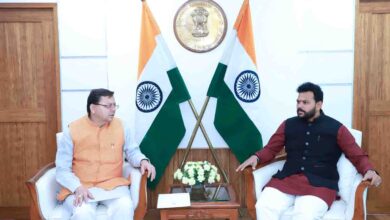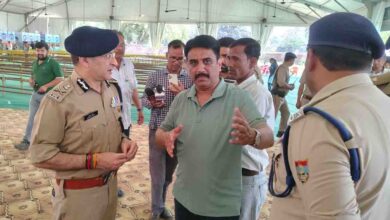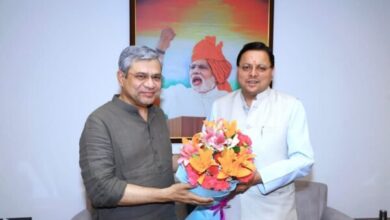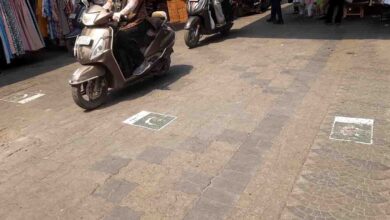Pioneer Talk: India can play a critical role in the global arena: Navtej Sarna

Pioneer Talk
India can certainly play a critical role in the global scenario considering its position as a major regional power and global presence. Today India is also showing a lot of backing and more clarity in several foreign policy situations than it did in the past. As an economy with tremendous potential, a regionally important power with much greater military and security power than it had in the past and as a partner of all major global powers, India can play a critical role in the global arena. Diplomat and author Navtej Sarna said this during an online interaction with The Pioneer.
Regarding the Indian diaspora’s position in the United States and the possible impact of the US presidential election’s result on India, he said that broadly speaking Indian diaspora has increased in the USA to about four million and has become a more important constituency than in the past. The Indian-American diaspora has also become more politically active in recent years. They were there earlier too in smaller numbers but were happy being good professionals. However, now for the last few years they have started playing a politically active role, contributing to fundraisers and backing candidates. The present congress has four congressmen and one senator who are partly or wholly of Indian descent.
He said, “About the probable outcome of the elections, though presently Joe Biden appears to be leading there are still some days for the election and some surprise revelation about something can change everything. I won’t make a prediction but Biden presently looks the stronger candidate simply because Donald Trump’s weaknesses on issues like Covid pandemic have come to the fore in the last few months. What will be good for India is a moot question as Indian will have to deal with whoever is in power. We have dealt successfully with the US in the past 20 years on an upward trajectory despite the different administrations in power. India will have to be flexible enough to move to the nuances the Democrat dispensation will have compared to the Republicans. However, we should stop worrying about what will be good for India. There is a basic logic for anybody in power to comprehend that India is an important partner. In terms of what happens in Indo-Pacific, South Asia, how China has to be countered by a whole swathe of countries- for all these issues India is likely to be the strongest partner the US has in the region.”
On the situation in the United Nations, Sarna said that multilateral institutions are facing a crisis, one of the factors- but not the only factor- is Trump’s stance. He has not shown confidence in the UN, WTO, walked out of UNESCO and stopped the funding of WHO. “When US which had created the multilateral system with other partners, loses confidence in it, the system is weaker today than it ever was. It is desperately in need of reform and change as also China is becoming more aggressive in multilateral institutions, actively seeking high level positions in different UN institutions to be able to play a critical role and control the agenda of multilateral negotiations. Institutions like the security council are getting outdated as the reality of 70 years ago is not the reality of today. When you keep nations like India out of the security council the instrument will naturally not be as responsive as it was meant to be. It has been in the pipeline for a quarter of a century but has not happened as those who are sitting at the high table do not want to share their own power. This has to be a moment in global affairs when things happen and today is a good moment as Covid has shown us our problems. It has accelerated the trend of people becoming nation-oriented than globalised,” he added.
Talking about his school days spent in the Doon valley, Sarna said it had then been a cosy, friendly and picturesque place which had stayed in his memories all his life. Asked how he had thought of giving Dehradun an important place in his first novel We Weren’t Lovers Like That, he said that his childhood memories of the Doon valley were very close to him and thus appeared in his first novel.
“The Dehradun of the 1960s and 1970s is something I can never forget. The town of pine and eucalyptus trees, litchi and guava orchards, canals, bicycles and tongas will remain with me forever.” He said he had wonderful memories of his schools Cambrian Hall and Saint Joseph’s Academy.
He further said his diplomatic and literary work had gone hand in hand and never conflicted with each other. “In fact, I believe that they complemented each other. I travelled widely and met so many different people. It all helped my writing. And as a diplomat, my writing gave me an additional dimension.”
Sarna said that he had written in various genres as his projects chose him instead of him choosing them. “And it so happened that I wrote in many genres including the novel, historical fiction, the short story and non-fiction.” He said that earlier he had found writing short stories simpler but now, having got used to the novel, he found the short story more demanding. He said his next novel, on which he is working, is set in Punjab against the backdrop of the Jallianwala Bagh massacre. “It has a vast canvas as a lot of events of historical importance were taking place at that time.”
Sarna said he had always wanted to write and had begun doing a lot of journalistic writing before he joined the Indian Foreign Service. “Writing has never been a choice. I have always wanted to write. It has been my passion and that is why I could always create time for it amid my extremely busy diplomatic career,” he said.
Tuesday, 27 October 2020 | PNS | Dehradun






